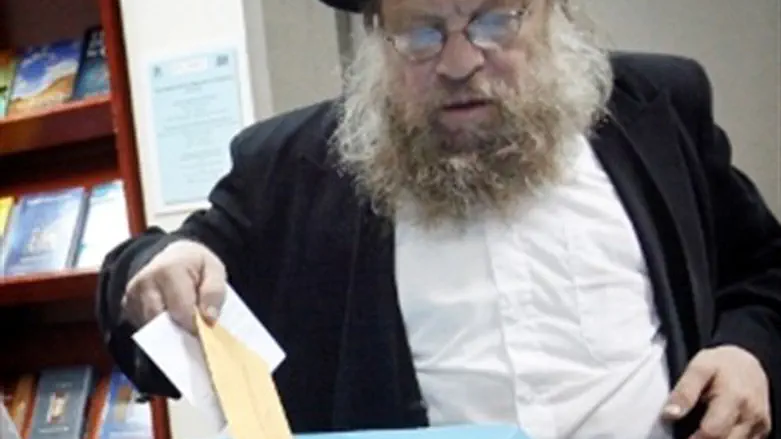
With negotiations between Israel and the Palestinian Authority about to begin, many have turned to a new debate: if the negotiations yield an agreement, should the nation have a chance to turn it down via a national referendum?
Support for the idea of a referendum is mixed across the coalition, with some MKs in favor and some opposed in each faction.
The Knesset Channel spoke to two MKs representing the right end and left end of the political spectrum within the coalition, MK Elazar Stern of Hatnua and MK Avi Wortzman of Bayit Yehudi (Jewish Home).
The interviewer turned to Wortzman first. “You in Bayit Yehudi jumped on the idea of a referendum as if it would torpedo the idea of two states for two peoples,” he said.
Wortzman denied that was his party’s primary reason for supporting a referendum. The real issue, he explained, is “preventing a rift in the Israeli nation.”
The interviewer seemed skeptical that the Israeli public would want to overturn a decision approved by the Knesset, but Wortzman insisted that it could happen.
Stern said he had two reasons for supporting a national referendum, even though the head of his party – Justice Minister Tzipi Livni, who is in charge of overseeing the negotiations process – is opposed.
His first reason is similar to Wortzman’s, “First of all, I really think this will be a very painful decision. And I think that in order for us to keep going as a society and a country afterward, it would help not to have this excuse – which is sometimes a valid excuse – that it was done in an underhanded way, and that the nation didn’t have a say.”
Secondly, he said, a referendum would give Prime Minister Binyamin Netanyahu more freedom to negotiate. Netanyahu could more easily make decisions on contentious issues knowing that Israelis will have a chance to voice opposition, he suggested.
Wortzman agreed, “It’s a very complicated decision. And there’s something to be said for taking responsibility off the Knesset and the government and giving it to the people.”
Toward the end of the interview an argument developed between Stern and Wortzman over their respective parties’ views of negotiations. Wortzman argued that Hatnua is the smallest party in the coalition with just six seats, and said Livni’s approach to negotiations should not be assumed to reflect that of the Israeli public.
Stern, for his part, cast doubt on Wortzman’s insistence that Bayit Yehudi would support talks with no preconditions, but takes issue with negotiations that can only begin if Israel makes concessions to the PA in advance. If Bayit Yehudi were truly concerned, he suggested, it would withdraw from the coalition.
“But you aren’t leaving,” he added.